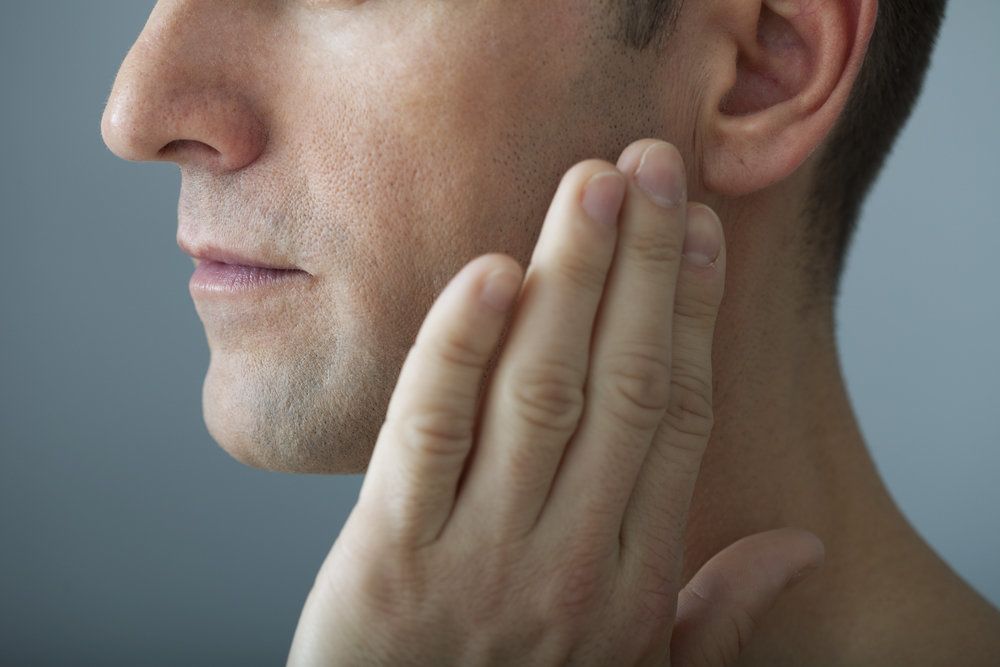Tooth Sensitivity and Chewing - What Are the Causes?
By John Rink DDS on April 14, 2017
 When we are young, we take it for granted that we can eat in complete comfort, experiencing no dental pain whatsoever. However, as we grow older, the risk of tooth sensitivity increases. One type of tooth pain that can occur is in response to chewing or pressure. At the Charleston Center for Cosmetic and Restorative Dentistry, Dr. John F. Rink offers restorative dentistry services to treat the dental conditions that cause tooth sensitivity when chewing. Certain dental problems can result in a sharp, shooting pain whenever pressure is applied to the affected tooth. To learn more, read on, and then contact our Charleston, SC practice to schedule an appointment with Dr. Rink.
When we are young, we take it for granted that we can eat in complete comfort, experiencing no dental pain whatsoever. However, as we grow older, the risk of tooth sensitivity increases. One type of tooth pain that can occur is in response to chewing or pressure. At the Charleston Center for Cosmetic and Restorative Dentistry, Dr. John F. Rink offers restorative dentistry services to treat the dental conditions that cause tooth sensitivity when chewing. Certain dental problems can result in a sharp, shooting pain whenever pressure is applied to the affected tooth. To learn more, read on, and then contact our Charleston, SC practice to schedule an appointment with Dr. Rink.
Causes of Tooth Sensitivity when Chewing
Typically, chronic tooth sensitivity that occurs in response to pressure is a sign of a dental problem such as:
- A cavity: When they first develop, cavities usually do not cause any pain. However, as the cavity grows, the nerves within the tooth become exposed. As the nerves become exposed, the tooth can become more sensitive to pressure.
- A fractured tooth: Tooth fractures can also expose the sensitive tissues within the tooth, particularly when the crack is deep.
- A dental abscess: A dental abscess can form in response to tooth decay, trauma, tooth fractures, and gum disease. One of the symptoms of a dental abscess is pain when chewing.
- A cracked restoration: A cracked dental restoration makes the tooth more vulnerable to infection, and may expose the nerves within the tooth. If the affected tooth has a filling, inlay, onlay, or crown, the restoration may require repair or replacement.
- Root canal infection: A root canal infection affects the nerves and soft tissues within the central canals of the teeth, so it is no surprise that the condition is associated with dental pain.
- Bruxism: If you experience pain when chewing across several teeth, you may suffer from bruxism. Bruxism is a condition in which patients chronically grind their teeth, especially at night. Patients with this condition may experience worsened pain when chewing in the morning, when the molars are the most sore after a night of bruxing.
Treatments for Tooth Sensitivity when Chewing
The treatment for this condition depends on the individual patient diagnosis. If you have a cavity or fractured tooth, we will use a dental filling or crown to restore the tooth.
Treatment for a dental abscess includes treating its underlying cause, such as tooth decay or gum disease. In addition, the abscess may be drained and antibiotics may be prescribed to eliminate the infection.
If you have a cracked dental restoration, Dr. Rink will repair or replace it.
Patients with a root canal infection with require root canal treatment, which involves removing the infected tooth material, filling the canals with a rubber compound, and capping the tooth with a crown.
Patients that grind their teeth at night can find relief in the use of a mouth guard while they sleep. A mouth guard prevents the clenching and grinding that can result in tooth pain the next day.
To scheduled an appointment with Dr. Rink, contact Charleston Center for Cosmetic and Restorative Dentistry today.

